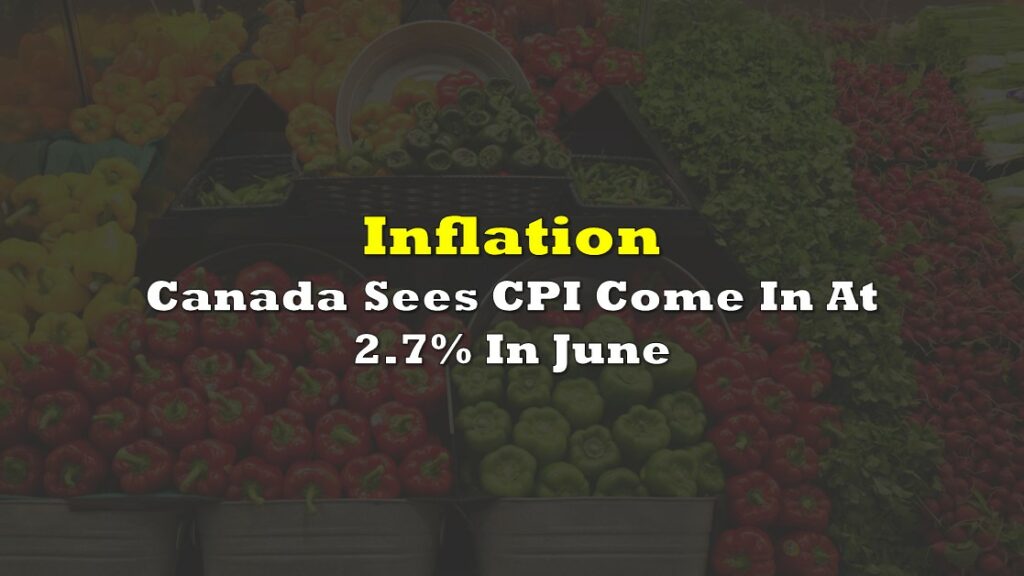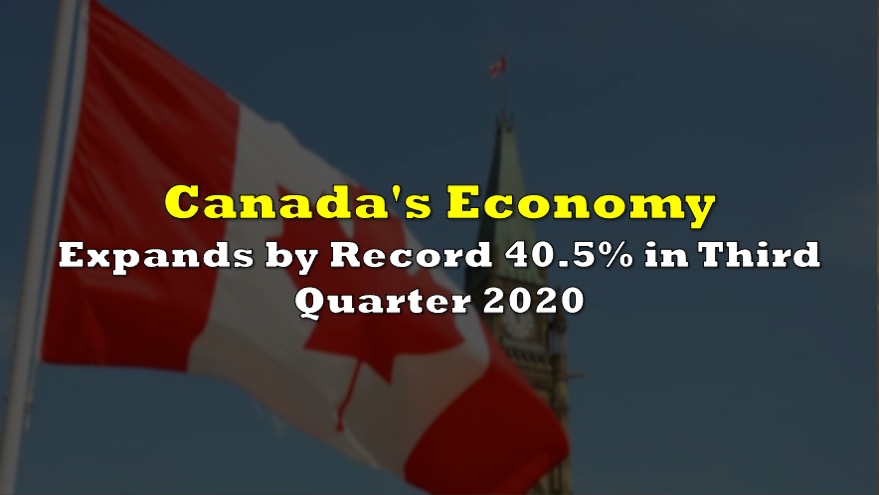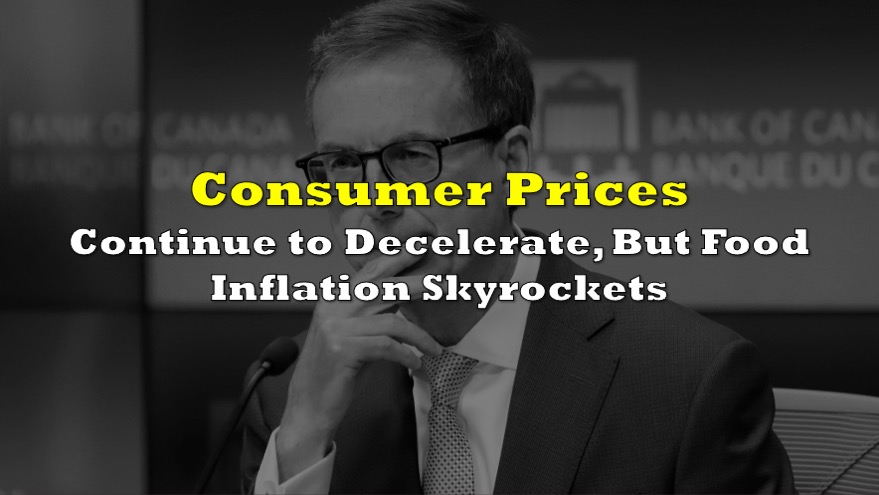Canadian grocery prices have been a cause for concern as they continue to rise, affecting families trying to manage their budgets. Late last year, Loblaws (TSX: L), the country’s largest grocer, announced a temporary price freeze on over 1,500 items in its No Name line.
While this move was controversial because the prize freeze was actually a practical industry practice and not a service to the regular Canadian that Loblaw CEO Galen Weston made it out to be, calling attention to the freeze was appreciated by price-conscious consumers.
But it was a temporary measure and limited to one company. To address the issue effectively, Vass Bednar, founder of Regs to Riches and a senior fellow at CIGI, and the executive director of McMaster University’s master of public policy in digital society program, suggests in an op-ed published on The Globe and Mail that the government should implement mandatory price controls across the entire grocery sector.
Bednar points out that price controls have been used in other countries with success. France introduced a temporary “anti-inflation” basket of food items with the lowest possible prices, which motivated voluntary price freezes from various retailers. Greece passed a law requiring stores to offer lower prices on 50 basic goods, including items for babies and pets. The Greek government even subsidized food expenses for its citizens to alleviate the burden of rising prices.
The Canadian government has introduced targeted inflation relief for consumers through the Grocery Rebate, but nothing has been done on the supply side to address corporate behavior. Food prices in Canada have already surged by 18% in the past two years, disproportionately affecting those with lower and fixed incomes, leading to food banks facing overwhelming demand.
The Bank of Canada acknowledged the pricing behavior of companies, with many increasing prices frequently and by significant margins. While inflation is expected to slow, food prices are not anticipated to drop. Bednar argues that the Grocery Rebate is time-bound and does not tackle the structural issue of a concentrated grocery sector.
“Worst of all, it doesn’t address the structural problem of a concentrated grocery sector – if anything, it acts as a public subsidy for private profit-making,” he wrote. “More Canadians would benefit from more affordable groceries – or at least prices that they can predict and plan for. What many people need is some guarantee of price stability.”
To achieve more stable and predictable prices, Bednar proposes the implementation of temporary price ceilings on essential grocery goods, including those for babies and pets. Major grocers could be compelled to comply with these price controls, possibly through their private-label products. The author believes that such price controls have been successful in the past, citing examples like rent control and rationing for scarcity.
However, some critics question the effectiveness of price controls in history, such as Pierre Trudeau’s Anti-Inflation Act in 1975 and the “Nixon shock” of freezing wages and prices in 1971. Bednar counters that the current landscape is different, with a more consolidated market and a narrower intervention, focusing on specific goods rather than the entire marketplace.
Moreover, it should also be noted that as more Canadians relied on food banks during and after the Covid-19 pandemic, grocers have also seen record profits.
Weston earned himself a generous 11% increase in compensation in 2022 totaling $11.8 million. Loblaws, meanwhile, saw revenue levels rise 6% in the first quarter 2023 thanks to higher sales of necessities including groceries and medications.
Empire Companies Limited (TSX: EMP), which owns several grocery chains including Sobeys and Longos, and is considered one of Canada’s “Big 3” grocers alongside Loblaws and Metro, in June announced that they would be expanding their stock buyback program — all while Canadian consumers have been struggling to feed themselves with the period’s grocery inflation rate at 9%.
Blatant price-fixing?
In related news, Dr. Sylvain Charlebois, director of the agrifoods analytics lab at Dalhousie University, highlighted in the Toronto Sun that major Canadian food companies, including Loblaw, Metro, Maple Leaf Foods, Walmart, and Weston Bakeries, are now facing a class-action lawsuit in Quebec over alleged price manipulation of meat, resulting in consumers paying more than $4 billion in unjustified excess.
“At the centre of the case lies a critical piece of evidence — an email dating back to March 2007, wherein the former president of Maple Leaf Foods, Michael McCain, outlines a concerning discussion with Paul Del Duca, a former senior vice-president at Metro in Ontario,” Charlebois wrote.
The same major food companies have also been accused by the Competition Bureau of taking part in a criminal price-fixing scheme that significantly inflated the wholesale price of bread spanning numerous years.
Just over a month ago, Canada Bread was fined $50 million for its involvement in the scheme. This was the largest fine ever imposed by a Canadian court for price-fixing, was announced by the Competition Bureau.
Weston Foods and Loblaws Companies Limited — both subsidiaries of George Weston Limited — which were willing participants in the price-fixing scheme, received immunity in exchange for throwing Canada Bread under the bus and fully cooperating with the Competition Bureau’s investigation.
Information for this story was found via The Globe and Mail, Toronto Sun, and the sources and companies mentioned. The author has no securities or affiliations related to the organizations discussed. Not a recommendation to buy or sell. Always do additional research and consult a professional before purchasing a security. The author holds no licenses.









